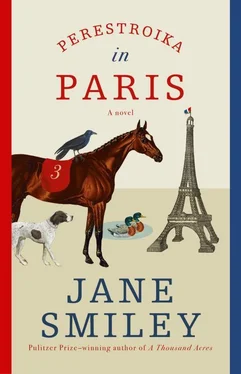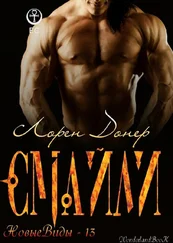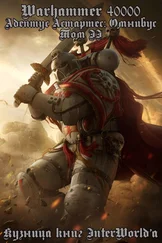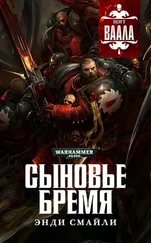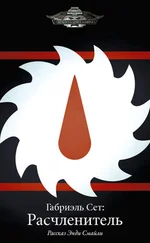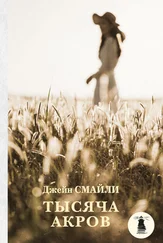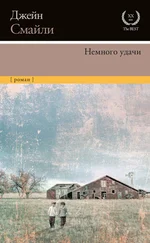Étienne couldn’t hear them, but Frida said, “Where can we possibly take him? We’ll be captured!”
Raoul said, “My relative Liam Corvus Cor—” But then he tossed his head and shut up.
Paras said, “I have an idea.”

PERHAPS, Étienne thought, he should go to the church and find the curé, but Étienne knew that as soon as he let the curé, and whoever else, into the house , they would take him and his great-grandmama out of it. He needed one last night with her, one last night in his own room, in his own library, in his own cuisine. Having made up his mind, he went down into the cellar and began sorting through the vegetables and other things stored there. At suppertime, he came back up with a bowl of some very nice beets and carrots, some oats, and the last of the apples, now wrinkled, but fragrant and firm. For himself, he put some cheese and dried fruits on the table, and in honor of his great-grandmama, he set a bowl of walnuts and a peeled orange in front of her chair. His great-grandmama had always been very fond of walnuts. He ate properly, as if she were with him, thinking of how good she had been, but also how interesting she had been. Then he went to the front door and opened it. The animals were still standing together.
The sun had gone down, and the only lamp Étienne turned on was a single wan bulb in the grand salon. Because of his great-grandmama’s poor eyesight, he was in the habit of turning on only the lights he needed for reading or thinking or helping her go about the place (not that, after so many years, she needed much help). But now, sitting beside the table, holding his book on his lap, and looking around, he began to cry for the first time. That was when he knew that she was dead, that, underneath all of the silence, there was no longer the even “sshh” of her breaths. From where he was sitting, he could see the shadowy emptiness of her yarn basket, like a hole in the ground, a drain to nowhere. Now fear began to infuse his sadness. He wondered whether elsewhere in Paris there were eight-year-olds sitting quietly by themselves, with no one anywhere nearby. Yes, her corpus was in her room—and what would he do with that?—but, truly, she was gone, alive only in his memory of her care and her good humor. He could hear himself sniffling, feel the tears running. He put his face in his hands.
First to appear, but not from outside, was Kurt, his nose twitching in the rush of evening air. He emerged from his hole (Étienne could hear him better than he could see him), zipped across the carpet, and crouched beside Étienne’s right foot. Étienne took his hands away from his face and looked down. He leaned forward, cupped his hands. Kurt stepped into them. Étienne straightened up, placed the rat on his knee. The next to appear was the raven, who came in the usual door, cawing. His cawing sounded very specific, but only Kurt knew that he was saying, “Well, at last! In circumstances like these, and believe me, Aves understand the ins and outs and ups and downs of death perhaps better than any other class of Chordata…” He fell silent. And here came Paras, not through her usual door, but through the big door, the door that required her to mount ten steps to the great portico. She whinnied a few things to Raoul, and then came to where Étienne was sitting, snuffled his hair, and put her chin gently on his shoulder. Her warmth spread out around him. He put his hand in the silky spot under her mane.
And now, at last, after so many months, here came Frida in through the small door, her tail down, her ears down, half slinking, a sad but determined look on her face. She looked exactly the way Étienne felt. She came all the way to him, and stood, trembling slightly, as Étienne petted her on her silky head. She mumbled a few things, the raven cawed, the rat squeaked, and Paras nickered gently. Étienne knew that they were talking to him, though not in his language, and he felt comforted. One by one, they settled in—the raven in his great-grandmama’s empty yarn basket, Kurt in the corner of the sofa, Paras in her usual spot in front of the windows, and Frida right there, right at his feet, her lovely head resting on her paws. Very soon, there was quite a bit of snoring, which Étienne found so soothing that he, too, put his head back and fell asleep.
Sometime later, Paras woke up, levered herself to her feet, and went into the cuisine, where she turned on the spigot and had a drink of water, then finished the last of the supper. It was that time of night, the deepest deepest dark, when she customarily went out into the Champ de Mars. The doors were open, and she could come and go as she pleased, but when she came back into the grand salon, she went over to the boy and poked him with her nose. He woke up at once. Frida woke up. Raoul flew up and perched on Paras’s croup, and Kurt scrambled to the back of the sofa. Étienne understood that they had a plan.
Étienne now remembered his outing of the night before, the pleasure of it. If the horse wanted to do that one last time, Étienne was all for it, and, indeed, he suddenly felt that he had to get out of this house. Paras placed herself next to the sofa and put her head down. The rat pulled himself up her mane and settled just behind her ears. Étienne followed them out the smaller door. Frida was at his heels. Paras waited while he opened the gate, and then they walked around to the staircase, and he climbed to the sixth step. She positioned herself. He put his leg over her back and hopped on, entwining his hands in her mane. The rat hadn’t gone with them the previous night, but he looked eager. Frida was mumbling. The raven continued to sit on Paras’s haunches until they were out of the gate, and then he rose gently on the breeze and stayed a few meters in front of them, only lifting and lowering his wings a little bit, swaying from side to side.
The horse walked down the allée, loosening up, relaxing, and then she eased into that canter again, and there they were, swaying and leaping, almost airborne, the trees passing them on the left, ping-ping-ping. At the pond, Paras slowed to a walk. The farther they went, the more Étienne wanted to keep going, the more it felt like escape rather than pleasure. Now they were in front of the Tour, just outside its circle of light. Paras’s walk was energetic. Frida trotted beside her. The rat made little squeaking noises, but he was sitting up straight, his tiny ears pricked, as if he was as interested in where they were going as Étienne was.
Paras paused. The raven landed on the fence. They waited. A large truck went by, and then it was so quiet that Étienne could hear the river bubbling and lapping against the embankment, and after that they were walking across the Pont d’Iéna. They passed the carousel, turned left, and headed up the dark path beside the great building, and every single step was into somewhere that Étienne, native Parisian, had never been before.

PARAS WAS NOT normally of a philosophical turn of mind, but she was surprised at how natural this was, how easy, really. This was nothing compared to a workout around the dirt track at Maisons-Laffitte. So far, this was a sprint, hardly enough to cause a stayer like Paras to breathe hard. Why had she waited so long? That was the price of indecision, wasn’t it? And yet it was also the price of freedom. Although she now felt herself responsible for Étienne, as well as drawn back to Delphine and that former life of fitness and purpose, she understood that her days of doing what she pleased when she was pleased to do it were behind her. As she climbed the path, she drew in many deep breaths, not because she was winded, but because she loved the air, the smell of spring, of grass, of plants and flowers and dirt, so different from the smell of oncoming winter and dead leaves from the last time she was here. She could feel the boy swaying as she walked, his legs relaxed, his body never moving out of plumb. He was, as Delphine would have said, a natural. And he was her responsibility now. Well, she didn’t mind that. She was four years old, a mare—mares took responsibility for almost everything groups of horses might do.
Читать дальше
